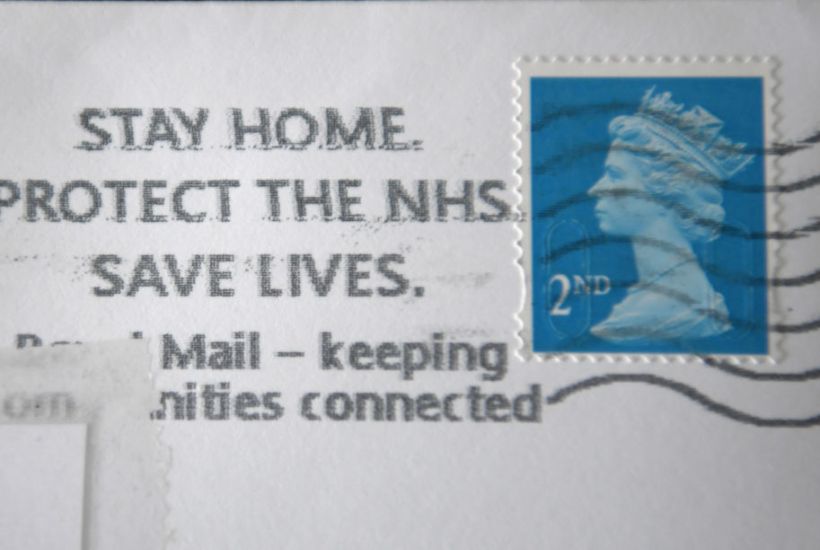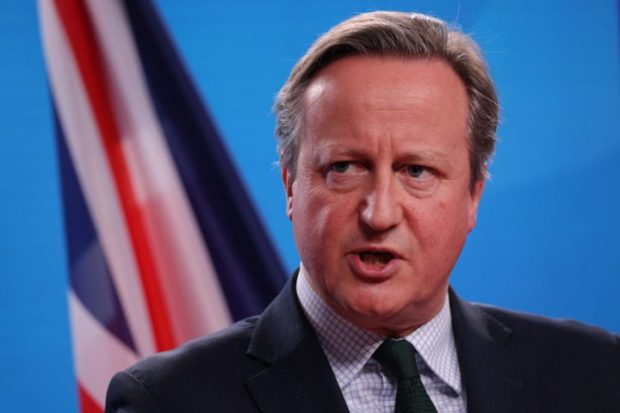Does Laura Perrins want me dead? The conservative commentator is coruscating about the government’s Covid-19 response. She abhors the lockdown and demands it be lifted immediately. ‘This lockdown and the extension on the 7th is the biggest error in British politics since WW1,’ she says. I am in the ‘at high risk’ group three times over and would quite like to go on living, if you don’t mind.
I follow Perrins on Twitter because, although we agree on almost nothing, I like to hear what the co-editor of the Conservative Woman thinks about the affairs of the day. In recent weeks, however, my finger has hovered indignantly over the ‘unfollow’ button as she has inveighed against the policy intended to keep people like me alive. She calls lockdown ‘immoral’. She says Boris Johnson ‘has made house arrest a legitimate form of government’. She argues that ‘Covid-19 represents zero threat to UK interests and the British way of life. The lockdown and Boris Johnson however are a real threat.’ The former barrister has even quipped: ‘If North Korea run out of dictators we have plenty, plenty right here in the UK’.
Perrins’ tweets are sincere and considered. She believes the government’s strategy is an offence against basic liberties and a betrayal of everything the Conservative party is supposed to represent.
Dissenters like Perrins are not popular at the moment. Plenty of people (myself included) feel a flash-fire of rage every time they pop up with their lockdown protestations. They need to stay home, save lives and keep quiet. Impatience with Covid’s conscientious objectors crosses political divides: progressives disdain the logical extension of selfish libertarianism while conservatives see petulance passing for libertarianism. These frustrations are natural and I feel them too but we should check them where we can.
Those of us who support the lockdown are (cautiously) putting our faith in the government’s strategy but we can’t berate the doubtful into sharing that faith. They are just as frightened as we are but they are frightened of different things: mass unemployment, large-scale bankruptcy, a Greater Depression, and the wrecking of small businesses built up over generations of love and toil. We are lucky to believe that all this is worth it. Living without even that meagre peace of mind must be grim.
The dissenters have not necessarily alighted on any unintended consequences the rest of us haven’t. We appreciate that locking people down locks women down with men who beat and abuse them. We know that compelling people to be less active is foisting physical ill-health on them and training them in bad habits that may stick for a life time. We understand that in the way we have gone about saving the populace from Covid-19 we have made them more susceptible to depression and anxiety.
But though we are aware of these side effects, we are not openly reckoning with them yet. Government ads nudge us to keep taking exercise but they don’t say why: the longer we stay in lockdown, the more we heighten our risk of heart attacks, strokes and diabetes. If you thought we had an obesity crisis going into lockdown, just wait till you see how high the national BMI has shot up when we come back out of it. A prolonged confinement will extend the lives of some but shorten the lives of others.
The toll on mental health will be far more punishing than we can yet imagine. Those in treatment have seen clinical interventions end abruptly, replaced by well-meaning advice about free apps and breathing exercises on YouTube. Those for whom leaving the house was already a daily battle no longer have to put up a fight. You don’t see as many people anymore and so there aren’t as many eyes on you to spot changes in mood or behaviour and take you aside to ask if you’re okay. It used to be annoying, all those well-meaning tugs on your elbow, but what you’d give for one now, because you’re really not okay at the minute. At least you have a name for how you’re feeling, you tell yourself. Those feeling these things for the first time don’t know what to call them. Eventually, they will turn to an NHS that may not have been overwhelmed by Covid-19 but is going to be thumped by a wave of lockdown-related mental ill-health.
Perrins’ perspective may be resented but the lonely voice of doubt usually is. Doubt used to be a virtue, the thinking man’s second rattle of a locked doorknob, but it has become a marker of provocateur anti-intellectualism. Perrins might or might not have a point but in a time of state edicts against family gatherings and police threats to inspect shopping baskets, isn’t it wise to have someone asking if we are doing the right thing?
Not everything has to be a culture war. Not everyone who objects to the current thinking on containing Covid-19 is garbage and needs cancelled. Perrins isn’t trying to kill me or anyone else and her anxieties don’t count for less simply because she comes to different conclusions. Anger is always in grabbing distance but if there was ever a time to stretch a little further for empathy now is it.
Got something to add? Join the discussion and comment below.
Get 10 issues for just $10
Subscribe to The Spectator Australia today for the next 10 magazine issues, plus full online access, for just $10.




















Comments
Don't miss out
Join the conversation with other Spectator Australia readers. Subscribe to leave a comment.
SUBSCRIBEAlready a subscriber? Log in